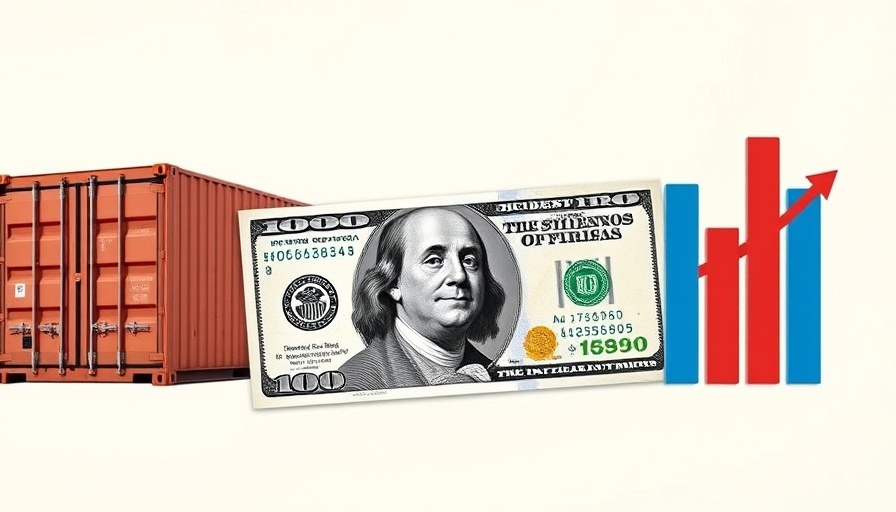
US Tariff Receipts Surge: Understanding the Impact of Trump's Trade Policies
The trade war initiated during President Trump's administration resulted in a significant increase in tariff receipts, reshaping the landscape of international trade. The United States saw tariffs rise dramatically as part of an aggressive economic strategy aimed at bolstering domestic industries. This article explores the implications and reactions to these changes, particularly for businesses in the Bay Area and beyond.
The Rise in Tariffs and What It Means
In 2018, the US implemented tariffs on numerous products, primarily targeting imports from China. This move significantly impacted companies relying on foreign goods, as they faced escalated costs. As a direct result, the US government reaped unprecedented increases in tariff receipts, a financial boon that reshaped budget forecasts but also sparked various reactions from the business community.
Economic Ramifications for Local Businesses
In the Bay Area, businesses such as Silicon Valley startups have had to navigate this evolving trade landscape. Increased tariffs have led many companies to reconsider their supply chains and manufacturing strategies. For tech startups reliant on components from abroad, the resulting price hikes have pressured them to find local alternatives or absorb the costs, potentially stunting growth.
Public Reaction and Business Adjustments
Local business leaders voiced mixed feelings about the trade policies. While some praised the intentions to protect American jobs, others expressed concern about the knock-on effects, such as rising prices for consumers and strained international relationships. Mergers and acquisitions in the tech sector have also been influenced, as companies assess the risk of tariffs in their financial models.
Predictions for the Future: Business Strategies Amid Tariff Changes
Looking ahead, experts predict that companies will continue to feel the pinch from tariffs. Strategic planning around sourcing materials and manufacturing will become crucial for survival in an increasingly competitive and regulated market. Business growth strategies will likely prioritize agility and sustainability, enabling companies to adapt swiftly to tariff-induced changes.
Understanding Trends and Market Analysis
A comprehensive analysis of current economic forecasts indicates that changes in tariff policies will continue to drive the market dynamics. As businesses adapt to these tariffs, trends in employment laws, consumer behavior, and corporate governance will remain essential in shaping their long-term strategies.
Small Business Resilience and Adaptation to Change
Small businesses, often more vulnerable to shifting trade policies than their larger counterparts, have begun to innovate and evolve. From exploring e-commerce solutions to focusing on local resources, small business news across the Bay Area showcases a resilience that is critical in uncertain economic times. Local business updates indicate an uptick in partnerships and collaborative efforts to bolster the community's economic standing.
Conclusion: The Call for a Balanced Approach
As the US nears a definitive resolution regarding tariffs, the lessons learned during these turbulent times call for a sensibility in balancing protectionist policies with the need for global partnerships. For Bay Area entrepreneurs and industry leaders, maintaining a keen awareness of both local and international business climates remains paramount for future success. An informed and adaptable approach to business innovations will ensure sustainability and resilience in the face of adversity.
 Add Row
Add Row  Add
Add 



Write A Comment